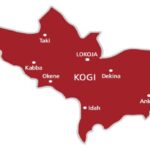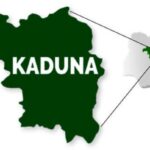Dawanau International Grain Market in Kano State deals solely on grains. The market was established to serve the state’s daily grain needs and also as a storage centre for grain in order to regulate the commodity’s price.
However, the market has grown and expanded to what it is today – an international grain market that supplies the West African sub region as well as other African countries with the needed grain and other commodities. The market which was initially known for the supply of food crops only has metamorphosed to a major supplier of various cash crops for export.
According to the market’s acting Chairman, Murtala Muhammed Labaran, popularly known as Murtala Danmutum, the market was establish over 46 years ago, and has historic business ties with Niger, Chad, Cameroon and many other African countries.
“This market had been a center for obtaining grains, particularly sorghum and millet for mini export and local consumption. However, with the ban on grain export, the market has over the last three years become a centre for cash crop exportation. Initially, West African countries were taking about 45% of our daily sales but with the recent ban on exportation of grain, many of our business associates went into exportation of cash crops such as Pigeon Beans, Sesame, Tamarin, Ginger and hibiscus popularly called Zobo among others,” said the acting Chairman.
He added that the export of these commodities has expanded presently to America, Asia and many European countries. According to him, no fewer than 40 to 50 trucks of assorted grain leave the market daily for local consumption and about 100 to 150 trucks leave for exportation daily. He said all the commodities are sourced locally.
“Though the market lacks modern facilities, exportation has gained a strong ground in the market. Go round and you will find out that there are over 200 internationally registered companies conducting their businesses here. Our business outlets have grown tremendously and business in the market is now more lucrative than it was last year. There are over 4000 people earning a living from this market and you can imagine the revenue accrued to the local and state governments,” he revealed.
The chairman further stated that for sustainability and improvement on the success recorded so far, there is a need for the state government to upgrade the market to a modern status and also to provide perimeter fencing for effective security, adding that there is also the need for road network in the market to ease commuting.
Similarly, Alhaji Umaru Ado, a seasoned farmer, reiterated the need for effective policy on exportation as unregulated export of grain from Nigeria through the Dawanau Market could spell doom for the country and may lead to famine if care is not taken. He added that though this year’s harvest seems to be good, the only way the federal government would address the issue is by re-introducing marketing boards in all the states. According to him, this will enable the government have total control on national annual grain harvest.
“It is good to have such a wonderful market situated in the country but without government’s control on what goes out or comes in, the development could be hazardous to the nation’s economy. As a farmer and businessman who deal in grains, I suggest that there should be an established government marketing board to ensure conformity to set policies on importations and exportations,” he advised.

 Join Daily Trust WhatsApp Community For Quick Access To News and Happenings Around You.
Join Daily Trust WhatsApp Community For Quick Access To News and Happenings Around You.



